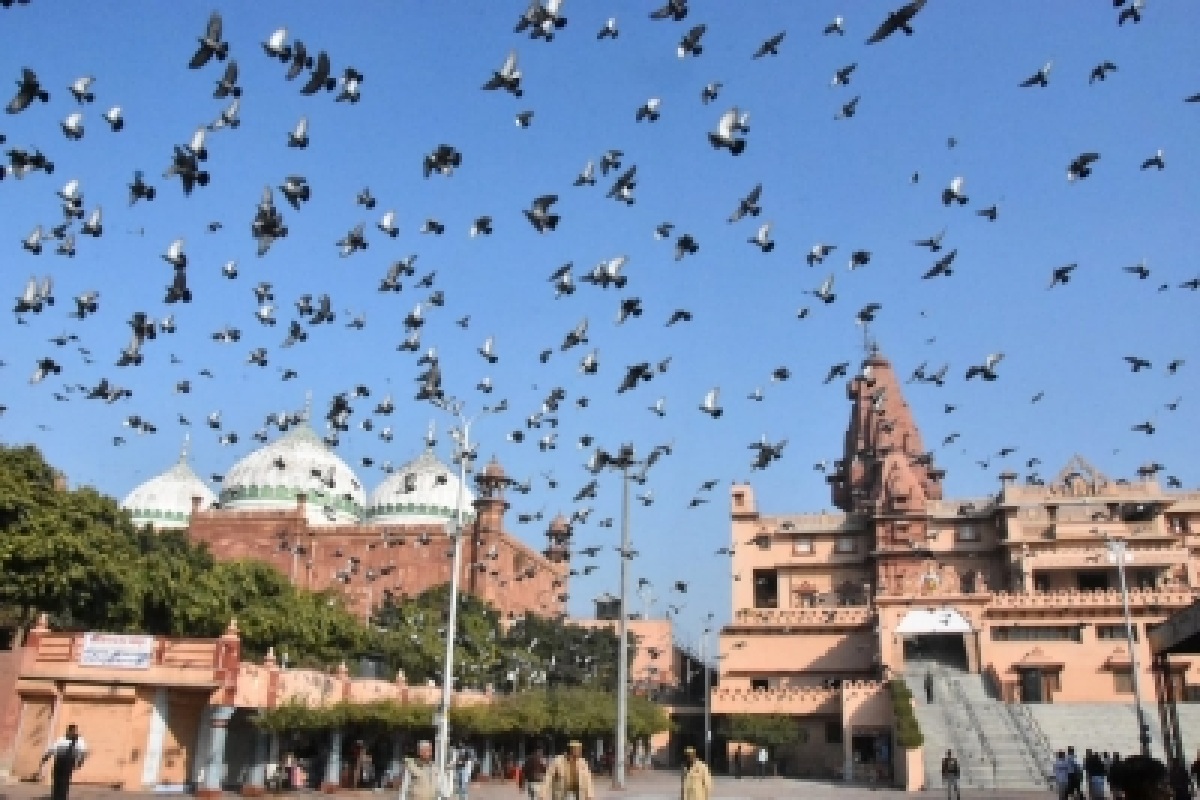Amid the row over discovery of a “Shivling” inside the Gyanvapi mosque in Varanasi, a district court in Mathura, earlier this week, allowed a plea by the Shri Krishna Janmabhoomi Trust and other private parties, seeking ownership of the land on which the Shahi Idgah mosque is built.
Both the Gyanvapi mosque and the Shahi Idgah Mosque, fall under the purview of The Places of Worship Act, 1991, but now they are under litigation.
Advertisement
The Idgah is next to the Sri Krishna Janmabhoomi Sthal, where Lord Krishna is believed to have been born, and the Gyanvapi mosque is adjacent to Kashi Vishwanath Temple.
The Mathura dispute involves ownership of 13.37 acres of land, which the petitioners claim belongs to Lord Shri Krishna Virajman and also challenged the validity of a 1968 compromise agreement between Shri Krishna Janmasthan Seva Sansthan and the Trust Masjid Idgah.
The petitioners claim the compromise agreement was fraudulent, where the temple authority conceded the contentious portion of land to the Idgah.
The temple trust and the private parties claim since the land was under control of the trust, the temple management authority was not in a position to enter into a compromise.
Counsel representing Idgah contended that the society is an agent of the trust, which appoints the head of the society, and the compromise agreement was also registered. The court has agreed to examine this compromise.
Since, both – Gyanvapi and Shahi Idgah – fall under the purview of the 1991 Act, it will be interesting to see what methodology the court adopts to resolve the issue.
The Places of Worship Act, 1991 terms itself “An Act to prohibit conversion of any place of worship and to provide for the maintenance of the religious character of any place of worship as it existed on the 15th day of August, 1947, and for matters connected therewith or incidental thereto.”
Section 4 of the Act says: “It is hereby declared that the religious character of a place of worship existing on the 15th day of August, 1947 shall continue to be the same as it existed on that day.”
Petitions have also been filed in the Supreme Court challenging the validity of the 1991 Act.
BJP leader and advocate Ashwini Upadhyay, who has filed one of the petitions, alleged: “The Centre has barred remedies against illegal encroachment on places of worship and pilgrimages and now Hindus, Jains, Buddhists, Sikhs cannot file a suit or approach a high court under Article 226. Therefore, they won’t be able to restore their places of worship and pilgrimage including temple endowments in spirit of Articles 25-26 and illegal barbarian act of invaders will continue in perpetuity.”
In March last year, Upadhyay’s counsel had argued that the 1991 law violated the principle of secularism which is an integral part of the Preamble and a basic feature of the Constitution. The Supreme Court issued notice on March 12 on Upadhyay’s plea, however it has not come up for hearing so far.
Another petition was filed by BJP leader Subramanian Swamy in June 2020, challenging the 1991 law. The apex court on March 26, 2021, admitted the petition for hearing, and sought a response from the Centre.
The Gyanvapi mosque case bears a striking resemblance to the Ramjanmabhoomi-Babri dispute — the matter is before the apex court, arising out of a civil suit. However, Shahi Idgah Mosque matter is still at the trial court stage.
Both cases involve interpretation of a complex mesh of laws against the backdrop of constitutional rights of two different communities to practice their religious faith respectively. Both cases are likely to see arguments for exemption of places of worship which are over a century old. And, the efficacy of the 1991 law, will also be under scrutiny in both cases.
Especially, when the Supreme Court, in the 2019 Ayodhya judgment, had said that the Act is intrinsically related to the obligations of a secular state and it reflects the commitment of India to equality of all religions. It will be interesting to see, how the Hindu parties skirt around the 1991 law or find gaps in the law to establish their claims – and also, the Muslim parties prepare their defence in view of the 1991 law.











